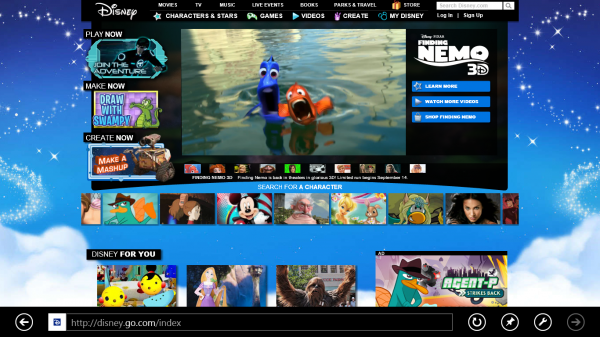Flash Integrated Natively In Internet Explorer 10?

Many webmasters, web developers and regular users thought that the rise of HTML5 would eliminate the web's need for Adobe Flash and other proprietary technologies. Even though we have seen some sites make use of HTML5 technologies, Flash is still widely used, often as a fallback for users whose browsers do not support all the HTML5 features required by the site.
We have also seen the native integration of Adobe Flash in Google Chrome, and if recent leaks are anything to go by, Internet Explorer 10 will also have Adobe Flash natively built-in. Internet Explorer 10 is expected to be released with Microsoft's Windows 8 operating system that will launch in the fourth quarter of 2012. The operating system will feature two versions of Internet Explorer: first the desktop version that is the successor of Internet Explorer 9, and then a specially designed version for the Metro UI version.
What makes this interesting is the announcement that Internet Explorer 10's Metro version will ship without plugin support. Up until now this meant all plugins, including Adobe Flash, Java or the company's own Silverlight. With Flash integrated natively in the browser, Microsoft would stay true to the past announcement, while allowing Metro users access to Flash-based contents at the same time.

A member of the Winunleaked forum spotted Flash Player in the control panel after installation of the operating system, and that both the desktop version and the Metro version were able to make use of it. Windows 8 furthermore blocked the installation of the regular Internet Explorer Flash plugin.
According to Rafael Rivera Microsoft brokered a deal with Adobe to get access to the Flash source code, in a similar fashion that Google managed to do earlier on. It appears that both companies will benefit from the integration. Adobe for one ensures that Flash installations stay on a high level, and Microsoft enables its Metro browser to access Flash contents after all.
It is not really clear yet if users have options to disable native Flash in Windows to improve the security of the system. I guess we have to wait until the release of the Release Preview version that is expected for June 1.
What's your take on this development? Great move, or another security risk that users have to deal with?
Advertisement

















Speaking about Windows 8 :
No-cost desktop software development is dead on Windows 8
Microsoft wants Windows developers to write Windows 8-specific, Metro-style, touch-friendly applications, and to make sure that they crank these apps out, the company has decided that Visual Studio 11 Express, the free-to-use version of its integrated development environment, can produce nothing else.
If you want to develop desktop applications—anything that runs at the command line or on the conventional Windows desktop that remains a fully supported, integral, essential part of Windows 8—you’ll have two options: stick with the current Visual C++ 2010 Express and Visual C# 2010 Express products, or pay about $400-500 for Visual Studio 11 Professional. A second version, Visual Studio 11 Express for Web, will be able to produce HTML and JavaScript websites, and nothing more……
http://arstechnica.com/information-technology/2012/05/no-cost-desktop-software-development-is-dead-on-windows-8/
You could also add them manually to Adblock or poison your own DNS if you’re using Tomato or DD-WRT firmware.
Security updates of third party software have always been an issue with MS and Apple. I think this is a good move or at least they mean well by trying.
We’re no longer seeing attacks against the OS or browser but primarily against plug ins. MS has worked hard to implement Integrity Levels but their useless if the plug ins are vulnerable. I think MS should offer updates for the “Top 10” most vulnerable software. Adobe PDF, Flash, Java, iTunes, etc. That being said, if all 3rd party software could be updated like Linux (a central package manager) then Windows could ship with Limited User accounts enabled by default. Too bad patents, copyright and lawyers will ensure it never happens.
This is a step in the right direction, however for those who don’t want to use Flash at all I hope there’s an option to uninstall Flash not just disable it.
Firefox is the only hope .
“What’s your take on this development? Great move, or another security risk that users have to deal with?”
Bad idea, I can only see security and compatability issues ahead. Other sites have said
“Some, but not all, Flash content will be able to play in the Metro browser”
and
“Security will rest somewhat on Microsoft’s ability to patch their software in time but will also be supported by a whitelist system. Flash for Internet Explorer 10 will only be supported on certain websites in certain ways. Unless your website is listed as requiring Flash for compatibility reasons then your website will not have access to the platform.”
So possibly more legal trouble, how can Microsoft be the one to choose which sites can and can’t use flash